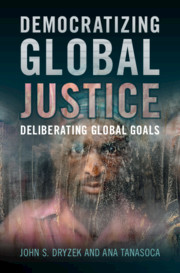Book contents
- Democratizing Global Justice
- Democratizing Global Justice
- Copyright page
- Contents
- Preface
- List of Abbreviations
- 1 Introduction
- 2 Agents of Justice
- 3 Democratizing Formal Authority
- 4 Democratizing Money
- 5 Democratizing the Power of Words
- 6 Empowering the Many
- 7 Democratizing Intergenerational, Interspecies, and Ecological Justice
- 8 Global Justice in the Deliberative System
- 9 Conclusion
- References
- Index
4 - Democratizing Money
The Rich, Corporations, and Foundations
Published online by Cambridge University Press: 21 May 2021
- Democratizing Global Justice
- Democratizing Global Justice
- Copyright page
- Contents
- Preface
- List of Abbreviations
- 1 Introduction
- 2 Agents of Justice
- 3 Democratizing Formal Authority
- 4 Democratizing Money
- 5 Democratizing the Power of Words
- 6 Empowering the Many
- 7 Democratizing Intergenerational, Interspecies, and Ecological Justice
- 8 Global Justice in the Deliberative System
- 9 Conclusion
- References
- Index
Summary
Money talks when it comes to global justice, no less than elsewhere. But what does money say? And does that have any legitimate role in realizing global justice? The persistence of injustice in a world dominated by the wealthy suggest they should not be relied upon. This chapter discusses the formative agency of the global rich, corporations, and foundations. The formative agency of the rich is exercised in both their political influence, in choosing recipients of their charity, and on what terms. Justice requires the democratic extension of formative agency beyond the rich and toward the poor. The influence of corporations is felt in the Sustainable Development Goals and in networked climate governance. So long as corporations are hard-wired for profit their formative agency should be restricted on questions of justice. Foundations are increasingly prominent in global governance; the Gates Foundation distributes over $4 billion per year. Embedding foundations in deliberative democratic relationships would advance democratic legitimacy and accountability, while bringing different sorts of knowledge to their activities. Deliberative accountability should apply to all wealthy actors, whose capacity to decide what global justice means and requires should be counterbalanced by an active role for citizens, the global poor, civil society, and international organizations.
Keywords
- Type
- Chapter
- Information
- Democratizing Global JusticeDeliberating Global Goals, pp. 80 - 101Publisher: Cambridge University PressPrint publication year: 2021

